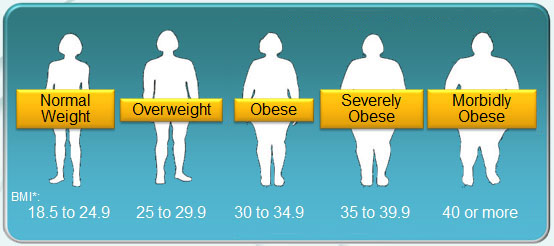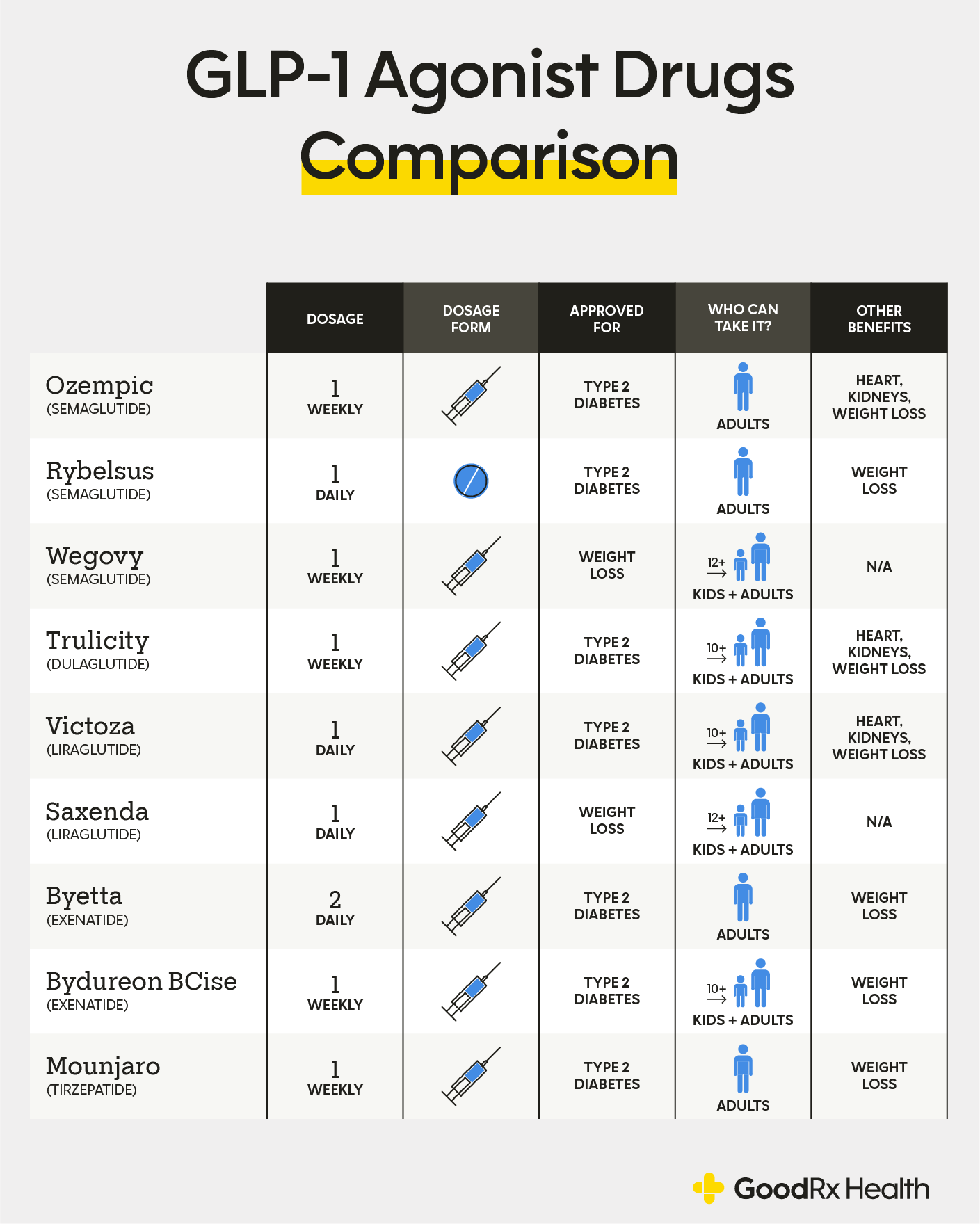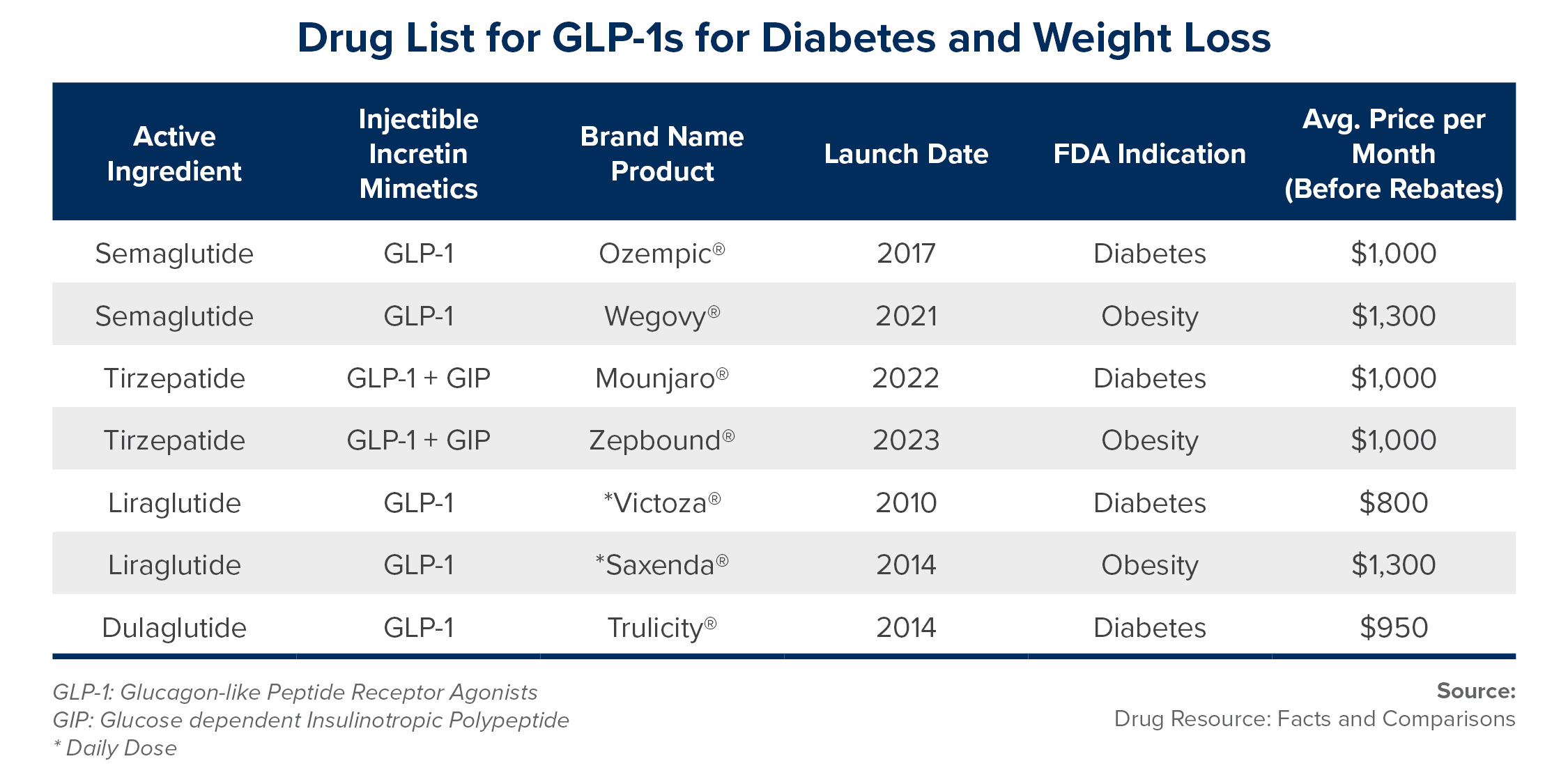Imagine shedding pounds without being diabetic. Sounds intriguing, right?
If you’ve been exploring weight loss options, you’ve likely heard about GLP-1. This breakthrough might be the answer you’ve been looking for. GLP-1 isn’t just for those managing diabetes—it’s making waves in the world of weight loss too. You might wonder how it works or if it’s safe for you.
We’ll dive into the science behind GLP-1 and how it can help you achieve your weight loss goals. Get ready to discover a new tool that could transform your journey to a healthier you. Stay with us, and let’s unravel the potential of GLP-1 for non-diabetic weight loss.
What Is Glp-1?
In the quest for weight loss, many people have come across the term GLP-1. But what exactly is GLP-1? Glucagon-like peptide-1, or GLP-1, is a hormone that plays a significant role in controlling how your body handles sugar and fat. Even if you’re not diabetic, understanding GLP-1 can offer you insights into how your body manages weight and metabolism. It’s like discovering a hidden ally in your body’s complex system that can support your weight management journey.
Role In The Body
GLP-1 is produced in the gut and has several functions. It helps regulate appetite by signaling your brain to feel full. Picture this: you’re halfway through a meal, and suddenly, your brain gets the message that you don’t need any more food. That’s GLP-1 at work. It also slows down the rate at which your stomach empties, ensuring you stay satisfied longer. Are you aware that this hormone also stimulates insulin release? This is crucial because insulin helps maintain blood sugar levels, preventing energy crashes and the urge to snack.
Impact On Metabolism
GLP-1 significantly impacts metabolism, aiding in weight loss efforts. It encourages your body to burn more calories and store less fat. Imagine your metabolism as a furnace that becomes more efficient with GLP-1. Have you ever wondered why some people seem to have faster metabolisms? GLP-1 might be their secret. By improving insulin sensitivity, it ensures your cells use sugar for energy rather than storing it as fat. This is a game-changer for anyone struggling with weight management.
Have you considered how understanding GLP-1 could transform your approach to weight loss? If your goal is to manage weight effectively, learning about GLP-1’s role could be your next step. How do you think your lifestyle might change with this knowledge? Understanding your body’s signals and how hormones like GLP-1 work can empower you to make informed choices, leading to sustainable weight management and a healthier you.
Glp-1 And Weight Loss
GLP-1 has gained attention for aiding weight loss in non-diabetics. Originally used for diabetes management, GLP-1 now shows potential for weight loss. This hormone affects appetite and digestion, making it a promising choice for those seeking weight management solutions.
Mechanism Of Action
GLP-1 stands for glucagon-like peptide-1. It is a hormone that helps regulate appetite. GLP-1 enhances the feeling of fullness after eating. This reduces hunger and food intake. The hormone also slows gastric emptying. This keeps you feeling full for longer periods. GLP-1 impacts insulin secretion and glucose regulation. While not diabetic, non-diabetics benefit from its appetite control properties.
Benefits For Non-diabetics
Non-diabetics can experience significant weight loss with GLP-1. This hormone reduces calorie intake effectively. People report less hunger and cravings. GLP-1 can improve metabolic health. It supports better fat distribution in the body. Users notice improved energy levels. Many find it easier to maintain a healthy weight. The benefits extend beyond weight loss, enhancing overall wellness.
Approved Glp-1 Medications
Approved GLP-1 medications are gaining attention for their weight loss benefits. Originally developed for diabetes management, these drugs now assist in shedding pounds. They work by mimicking the body’s natural hormones to regulate appetite. This helps people eat less and feel full longer. Let’s explore popular options and their safety and efficacy.
Popular Options
Several GLP-1 medications are approved for weight loss in non-diabetics. Semaglutide, marketed as Wegovy, is a leading choice. It aids in reducing body weight effectively. Another option is Liraglutide, sold under the name Saxenda. This medication also supports weight management goals. Both drugs require a prescription and medical supervision.
Safety And Efficacy
These medications are considered safe for most individuals. Clinical trials show significant weight reduction among users. Common side effects include nausea and digestive issues. Always consult a healthcare provider to understand risks. Monitoring is essential to ensure safety during treatment. Regular check-ins help manage potential side effects.

Credit: www.clinicalcorrelations.org
Lifestyle Changes
Exploring GLP-1 for weight loss offers a new path for non-diabetics aiming for healthier lifestyles. This approach involves lifestyle changes focusing on diet and exercise, helping individuals manage weight effectively. Embracing these habits can lead to a more balanced and fulfilling life.
Embarking on a weight loss journey using GLP-1 medications without having diabetes is an exciting step. However, medications alone won’t do the trick. Lifestyle changes are crucial. They enhance the effectiveness of the medication and contribute to sustainable health improvements. You might wonder, “How do I start making these changes?” Let’s break it down into manageable parts. ###Diet And Nutrition
Making small adjustments to your diet can have a big impact. Start by adding more fruits and vegetables to your meals. These are rich in nutrients and low in calories, making them perfect allies in your weight loss journey. Consider portion control. Use smaller plates to naturally reduce the amount you eat. This simple trick can help you avoid overeating. Stay hydrated. Sometimes, thirst is mistaken for hunger. Drinking water can help you feel full and prevent unnecessary snacking. Have you tried keeping a water bottle with you throughout the day? ###Exercise And Physical Activity
Physical activity is a key component of any weight loss plan. You don’t need to spend hours at the gym. Short, effective workouts can be just as beneficial. Find activities you enjoy. Whether it’s dancing, hiking, or cycling, choose something that makes you happy. This increases the likelihood you’ll stick with it. Set achievable goals. Start with a 10-minute walk daily and gradually increase. Have you thought about how a small change like this could boost your mood and energy levels? Changing your lifestyle to support weight loss may seem daunting. Yet, with intentional steps, it becomes a journey of personal growth and health improvement. What small change can you commit to today?Potential Side Effects
Exploring Glp-1 for weight loss in non-diabetics can be intriguing. While this medication offers potential benefits, it’s crucial to understand its side effects. This knowledge helps in making informed choices about its usage. Let’s dive into the possible side effects and how to manage them effectively.
Common Concerns
Many people experience mild side effects. Nausea is common and may occur initially. Some report headaches and dizziness. Digestive issues like diarrhea can also happen. These symptoms are usually temporary. They often reduce as your body adjusts. But it’s wise to monitor your body’s response.
Managing Risks
Understanding and managing risks is key. Consult with a healthcare professional before starting. They can provide guidance tailored to your needs. Regular follow-ups help in tracking progress. Adjustments in dosage may be necessary. Staying hydrated can ease some symptoms. A balanced diet supports overall well-being. Listen to your body and report persistent issues.

Credit: www.goodrx.com
Consulting Healthcare Professionals
Consulting healthcare professionals is vital for anyone considering GLP-1 weight loss treatment. These experts offer guidance tailored to individual health needs. They ensure safe and effective weight management. Their insights help navigate potential side effects and interactions.
Finding The Right Support
Seek professionals experienced in GLP-1 treatments. They should understand weight loss needs. Board-certified endocrinologists or bariatric specialists are ideal. They have in-depth knowledge of GLP-1’s effects. Check their credentials and patient reviews. A good rapport is also important. Comfort with your healthcare provider matters. It enhances communication and treatment success.
Monitoring Progress
Regular check-ins with healthcare professionals are crucial. They track your body’s response to GLP-1. Adjustments in dosage or treatment may be needed. Monitoring ensures the best outcome. Discuss any side effects experienced. This helps tailor the treatment plan. Use these sessions to ask questions. Gain a clear understanding of your journey. Keep a record of your progress. It aids in assessing the treatment’s effectiveness. Stay informed and proactive. This partnership with your healthcare provider is key.
Real-life Success Stories
Many individuals have found success using GLP-1 for weight loss. These stories inspire those on similar journeys. People share their experiences, struggles, and triumphs. They offer hope and motivation to others. Real-life success stories highlight the potential of GLP-1 treatments.
Inspiring Transformations
Meet Sarah, a 35-year-old mom. She lost 30 pounds with GLP-1. Her journey wasn’t easy. She faced challenges daily. But, she stayed committed. Her energy levels improved. She felt more confident. Her story inspires many others.
Another success is John. At 45, he weighed 250 pounds. He started GLP-1 treatments. Within six months, he lost 40 pounds. His family noticed his positive change. John felt healthier. He now enjoys outdoor activities more.
Lessons Learned
These stories teach valuable lessons. Consistency is key. Both Sarah and John stayed consistent with their treatments. They didn’t let setbacks stop them. Patience is crucial too. Weight loss takes time.
Support also plays a vital role. Sarah had her family’s support. John joined a community group. They both found motivation in others. Their stories show the importance of a support system.
Healthy habits matter. John changed his eating habits. Sarah started daily walks. These changes complemented their treatments. Their stories remind us of the importance of lifestyle changes.

Credit: www.bbrown.com
Frequently Asked Questions
What Is Glp-1 For Weight Loss?
GLP-1 is a hormone that helps regulate appetite. It slows gastric emptying and increases feelings of fullness. Medications mimicking GLP-1 can aid weight loss in non-diabetics. They enhance satiety and reduce food intake, making them effective for weight management. Consult a healthcare provider for guidance.
Can Non-diabetics Use Glp-1 Medications?
Yes, non-diabetics can use GLP-1 medications for weight loss. These drugs are FDA-approved for obesity treatment. They help by reducing appetite and increasing fullness. Always consult a healthcare professional before starting. They will assess your health needs and provide personalized advice.
How Effective Is Glp-1 For Weight Loss?
GLP-1 medications can significantly aid weight loss. Studies show users can lose around 5-10% of body weight. They work by curbing hunger and increasing satiety. Results vary by individual and lifestyle factors. Combining medication with diet and exercise enhances effectiveness.
Are There Side Effects Of Glp-1 Medications?
Yes, GLP-1 medications may cause side effects. Common ones include nausea, vomiting, and diarrhea. Most side effects are mild and temporary. Serious effects are rare but should be monitored. Discuss potential risks with your healthcare provider. They will help manage any adverse reactions.
Conclusion
GLP-1 can aid weight loss for non-diabetics. It’s a helpful tool. Many see positive results with proper guidance. Consult a healthcare provider before starting. It’s essential for safety and effectiveness. Individual results vary. Patience and consistency are key. Stay informed and make healthy lifestyle choices.
Balanced diet and exercise enhance results. GLP-1 is not a quick fix. It’s part of a holistic approach. Prioritize overall well-being and health. With careful use, benefits are achievable. Explore options with a professional’s help. Small changes can lead to significant progress.
Empower your journey with knowledge.
{ “@context”: “https://schema.org”, “@type”: “FAQPage”, “mainEntity”: [ { “@type”: “Question”, “name”: “What is GLP-1 for weight loss?”, “acceptedAnswer”: { “@type”: “Answer”, “text”: “GLP-1 is a hormone that helps regulate appetite. It slows gastric emptying and increases feelings of fullness. Medications mimicking GLP-1 can aid weight loss in non-diabetics. They enhance satiety and reduce food intake, making them effective for weight management. Consult a healthcare provider for guidance.” } } , { “@type”: “Question”, “name”: “Can non-diabetics use GLP-1 medications?”, “acceptedAnswer”: { “@type”: “Answer”, “text”: “Yes, non-diabetics can use GLP-1 medications for weight loss. These drugs are FDA-approved for obesity treatment. They help by reducing appetite and increasing fullness. Always consult a healthcare professional before starting. They will assess your health needs and provide personalized advice.” } } , { “@type”: “Question”, “name”: “How effective is GLP-1 for weight loss?”, “acceptedAnswer”: { “@type”: “Answer”, “text”: “GLP-1 medications can significantly aid weight loss. Studies show users can lose around 5-10% of body weight. They work by curbing hunger and increasing satiety. Results vary by individual and lifestyle factors. Combining medication with diet and exercise enhances effectiveness.” } } , { “@type”: “Question”, “name”: “Are there side effects of GLP-1 medications?”, “acceptedAnswer”: { “@type”: “Answer”, “text”: “Yes, GLP-1 medications may cause side effects. Common ones include nausea, vomiting, and diarrhea. Most side effects are mild and temporary. Serious effects are rare but should be monitored. Discuss potential risks with your healthcare provider. They will help manage any adverse reactions.” } } ] }
